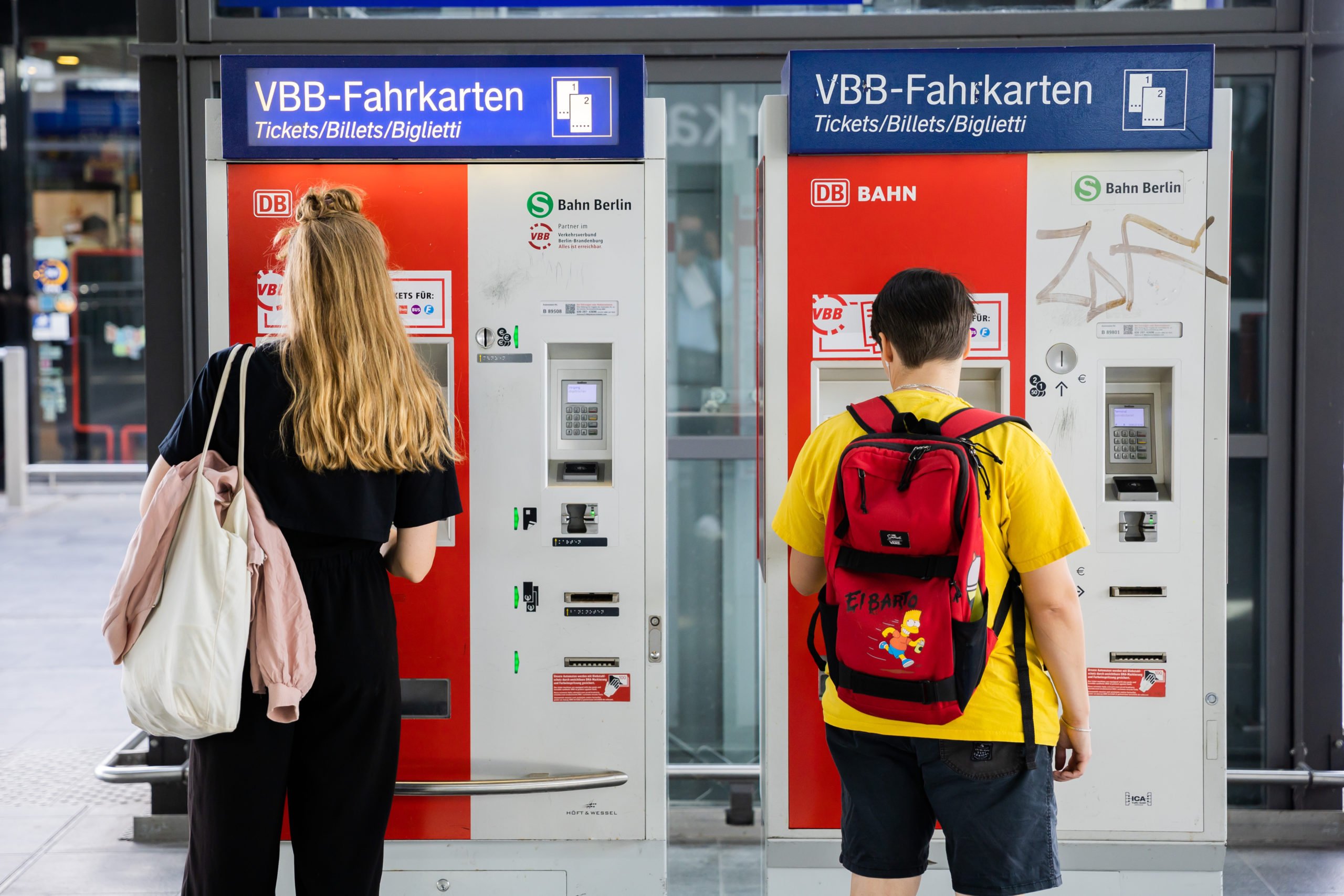The mother and her child were killed when a tree fell on their car near Gelsenkirchen in North Rhine-Westphalia. Two other children were injured in the incident, one seriously.
A sailor died near Cologne on Sunday when his boat capsized on a lake and an angler also drowned when his boat was tipped over by strong waves in west Germany.
In Emden, East Frisia, strong winds ripped off the roof of this harbour building.
Planes towards Scandinavia were grounded out of Hamburg airport on Monday afternoon and the city's S-Bahn was experiencing delays.
From 2.30pm onwards, Deutsche Bahn shut down Schleswig-Holstein's entire regional train service until further notice due to the severe weather.
Flights from Düsseldorf to Hamburg were also cancelled.
CLICK HERE for photos of the storms in northern Germany
Meanwhile, strong winds ripped off a facade from the front of a university building as far south as Göttingen, Lower Saxony, smashing several cars.
Germany was not expected to be exposed to the same widespread damage that southern parts of Britain woke up to on Monday morning, but northern coastal areas are seeing gale-force winds, wild seas, and lots of rain.
A separate weather system will bring similar storms to the south at the same time.
By mid Monday afternoon reports of damage had already started coming in. with a university facade in Göttingen in Lower Saxony
Late Monday afternoon could see gusts of up to 140km/h, meteorologist Christian Herold of the DWD said. This will move to more inland northern areas, which could see blasts of between 70 and 100 km/h.
Monday night will bring more rain to the south and south-western states. Storms will bear down along the North Sea coastline, with gale-force blasts expected to rock towns and villages.
This will be accompanied by balmy lows of 12C in the north of the country, and cooler temperatures of 5C in the south around the Alps.
Check out the latest weather forecast for your part of Germany here
On Tuesday, rain will fall in the north and west of the country. Occasional thunderclaps will be heard along the coast. A separate bout of more intense rain will fall in the foothills of the Alps.
The eastern states will be sunnier though, avoiding the main onslaught of wild weather. It will remain warm with highs of 17C around the Rhine in the west and in dry parts of the east. In the south, a brisk wind will force temperatures slightly cooler.
Rain and wind will continue through Tuesday night for the North Sea coast. The south east will also be hit by showers. Most other parts of Germany should be dry, with lows between 9C and 2C. In higher areas it could drop to freezing.
Wednesday will see rain across Lake Constance up to Bavaria's forests. While stormy conditions will ease a little, it will likely remain very wet and windy up along the north coast. Western, central and eastern states should stay dry. Temperatures will hover between 14C and 8C.
Dry weather should reign by Wednesday night, as rainclouds retreat. This does mean that fog will build up through the night, and that temperatures will sink to around 9C along the coast and -1C in rural, central areas.
As early-morning fog clears on Thursday, the day will develop into a dull one. It should, however, stay dry even along the coast. Wind will have calmed by then and there should be highs of between 14C and 9C.
READ MORE: Nine weird German weather phenomena
The Local/jcw
Follow us on Twitter @thelocalgermany
Like The Local Germany on Facebook





 Please whitelist us to continue reading.
Please whitelist us to continue reading.
Member comments